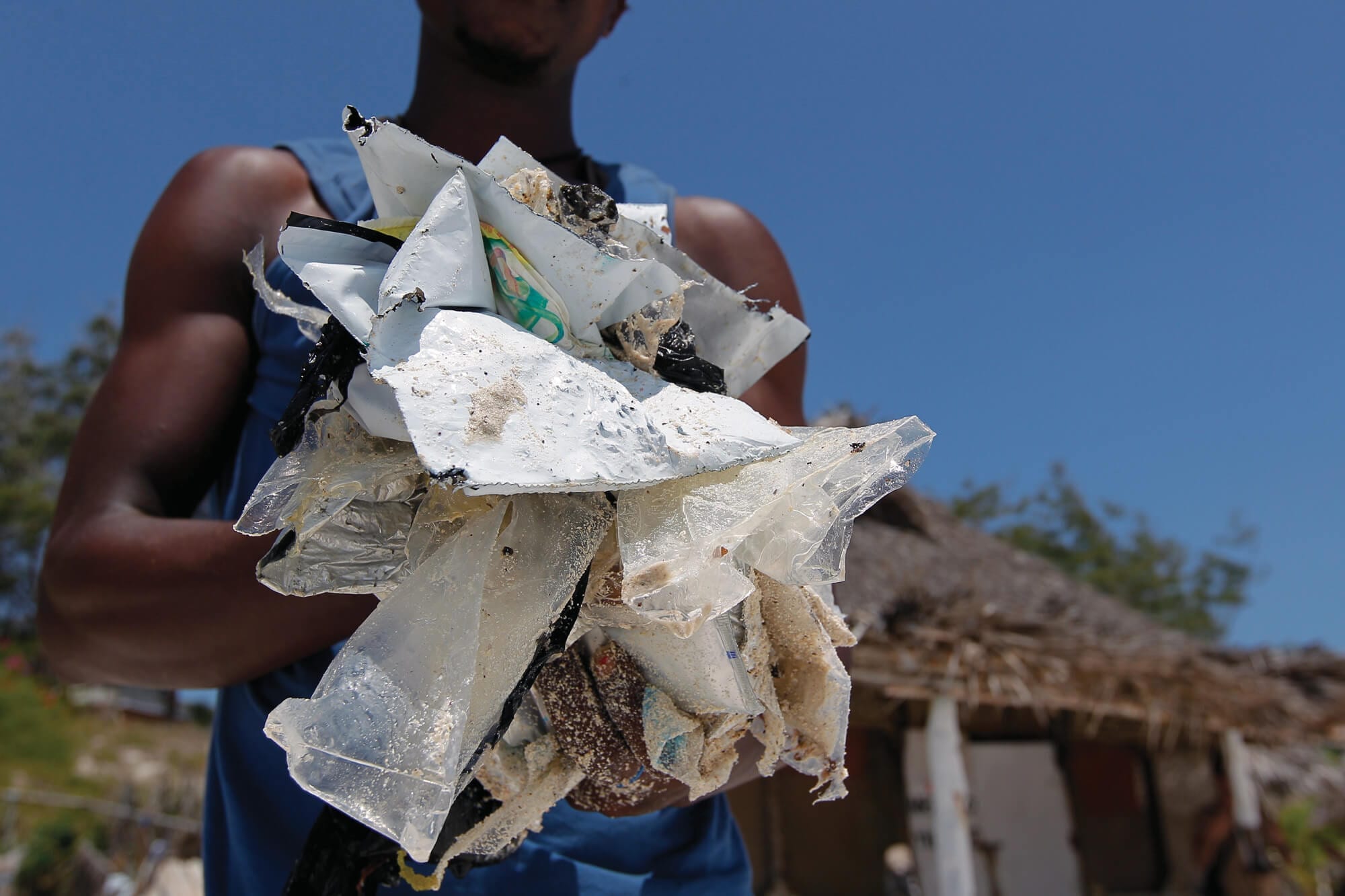Bad Plastics, Good Plastics
An unfortunate consequence of our campaigning against the tide of plastic pollution is that some think the United Nations has decided to go to war with the plastics industry. That could not be further from the truth.
The fact is that plastics are a miracle material and could even be the very thing that saves humanity from catastrophic climate change. The problem in our oceans isn’t plastics, it’s what we do with them. Over the years, we got lazy – creating an infinite number of single-use, throwaway items like bags, drinking straws or pointless packaging. These items are often used for just a few seconds, and then cast away indefinitely to take up space in a landfill or float around the oceans.
Plastic particles have been found at the bottom of the Mariana Trench, the deepest point on earth. Lumps of polystyrene have been seen floating amid the icebergs, and starved whales have washed up in Spain and Norway with their digestive systems crippled by plastic bags. At the current rate, we’re turning the seas into a plastic soup, although for some tidal convergence zones that is already the case.

The bottom line is that many plastics are not resource efficient and are a waste management nightmare. The way forward is clearly the EU’s new plastics strategy and a ban on single-use plastics. In turn, we have to be far smarter, which is why, ultimately, we’ll be campaigning for upstream change. We need to see smarter designs and an end to the kind of levels of planned obsolescence that we see today in so many products. In other words, manufacturers must start to think about and be accountable for the full lifecycle of their products.
This shift will also have a bearing on the clean energy revolution. Plastics will be at the center of solutions to a whole host of environmental issues – and therein is a huge opportunity for the sector to transform some of its worst practices, notably that of churning increasing quantities of single-use plastics.
The bottom line is that plastics are not resource efficient and are a waste management nightmare.
Modern polymers are now a common part of fuel-efficient transportation – and famously made up much of the record breaking proof of the concept Solar Impulse plane. Plastics are finding their way into green buildings, redefining what can be achieved both in terms of innovative architecture, energy efficiency and low materials cost. And the growth of wind farms across Europe – some of them setting new production records that are shattering all expectations – are further proof that plastics are far from being a menace.
All this is proof that the best ingredient for solving our environmental challenges is innovation. This must accelerate, and our plastics problem and energy needs provide a useful intersection for ideas.
The possibilities are huge: 3D printed solar panels could ensure widespread and low-carbon panel manufacturing, with localized production further reducing the environmental footprint of shipping. The plastics to energy sector has huge scope for improvement, while reusing waste plastic or anything from roads to building insulation and integrating that into clean power generation and storage could merge waste management with low cost but high-quality materials.
What is clear is that the clean energy transition is just starting. While clean power added to the global grid last year and outstripped new fossil fuel installations, clean energy still has a woefully small market share of the energy landscape. Unlocking the true potential of renewables and overcoming some of the stumbling blocks also means unlocking innovation and looking for solutions at the heart of some of the many global environmental problems. A new orientation for the plastics sector is certainly one of the ways forward – meaning we get the very best out of this miracle material.